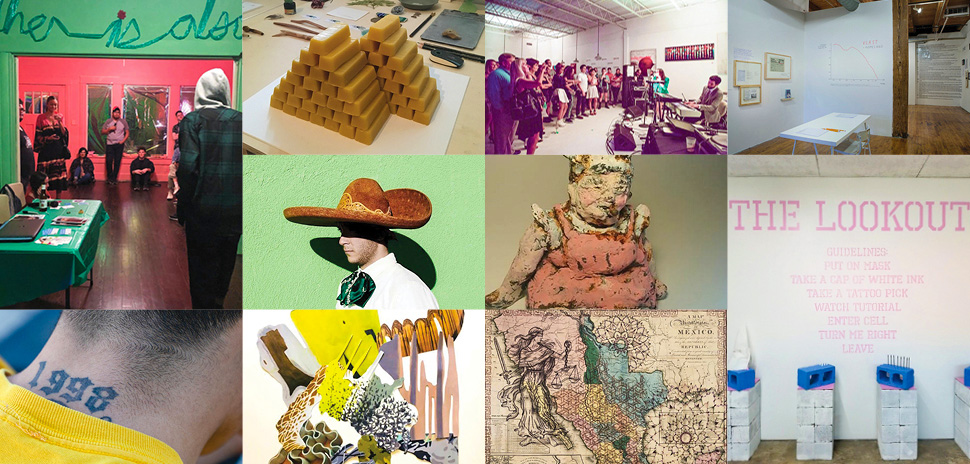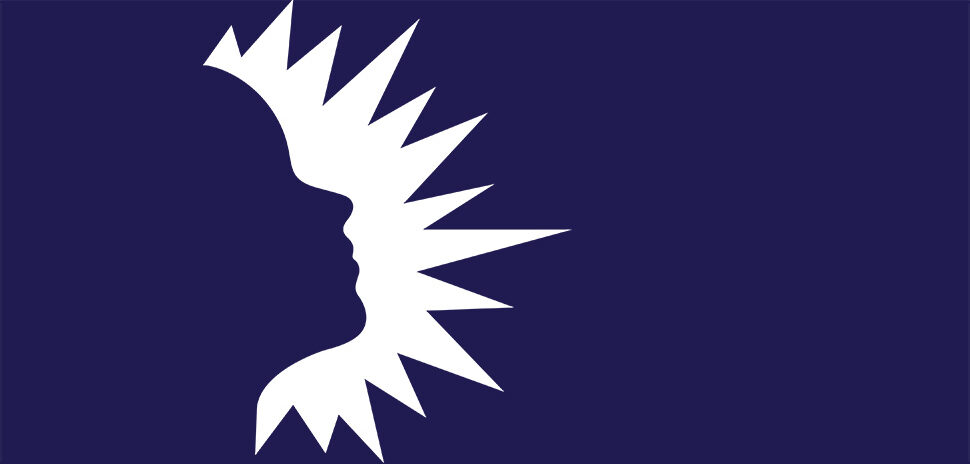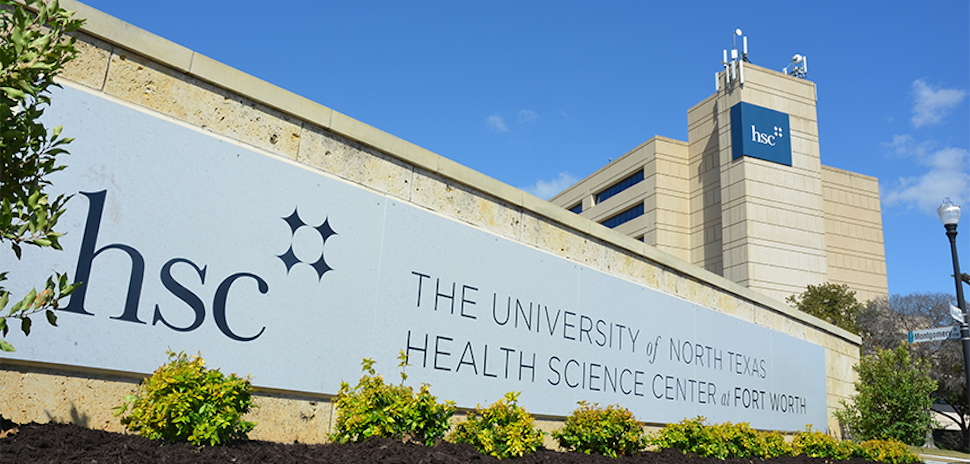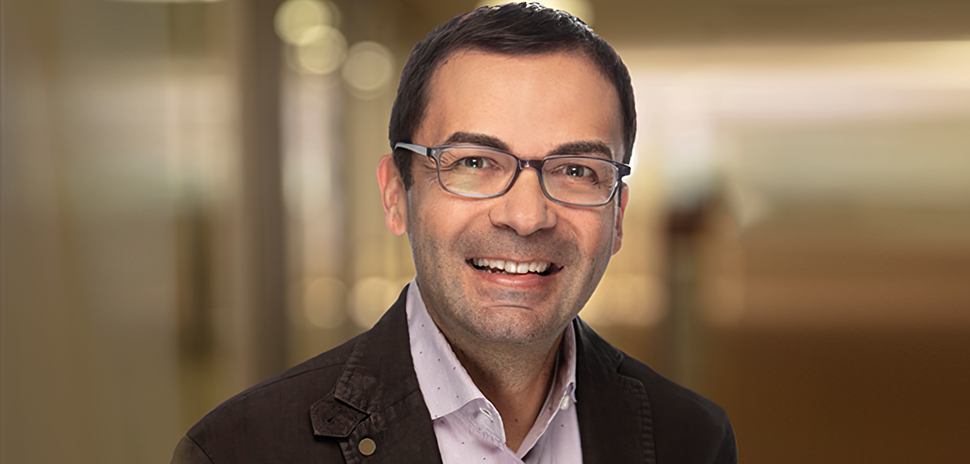The Nasher Sculpture Center has announced the winners of its Nasher Artists Grants program, which financially supports North Texas artists and their passions.
To better support artists through the COVID-19 pandemic, Nasher this year restructured the program by doubling the number of grants from five to 10, each valuing $2,000.
Winners of the grants were selected by a group of artists, previous Nasher Artist grant winners Nida Bangash and Arnoldo Hurtado, Nasher Program Advisory Board member Allison V. Smith, Berlin-based artist Bettina Pousttchi, Nasher Associate Curator Leigh Arnold, and Nasher Curator of Education Anna Smith.
The 2020 Nasher Artist Grant awardees include Sarah Ayala, Sara Cardona, Janeil Engelstad, Julia Jalowiec, David Jeremiah, Cynthia Mulcahy, Nancy Newberry, Darryl Ratcliff, Raul Rodriquez, and Third Space DFW. The grants awarded will help the artists with their upcoming projects.
The 2020 Nasher Artist Grants are funded by Ann and Charles Eisemann, with additional support provided by Michael Corman and Kevin Fink, Michael Corris, Lucilo Peña and Lee Cobb, Ginny and Connor Searcy, Wendy and Jeremy Strick, The Donna Wilhelm Family Fund, and Nasher Members and Donors.
Applications for the Nasher Artist Grant will open in April 2021.
Check out each 2020 artist and their plans below.
All images and descriptions are courtesy of the Nasher.
Sarah Ayala, Fort Worth
With her background in sign painting, Ayala will create artwork on maps to represent affected areas of the COVID-19 pandemic and its impacts on the environment and the globe.
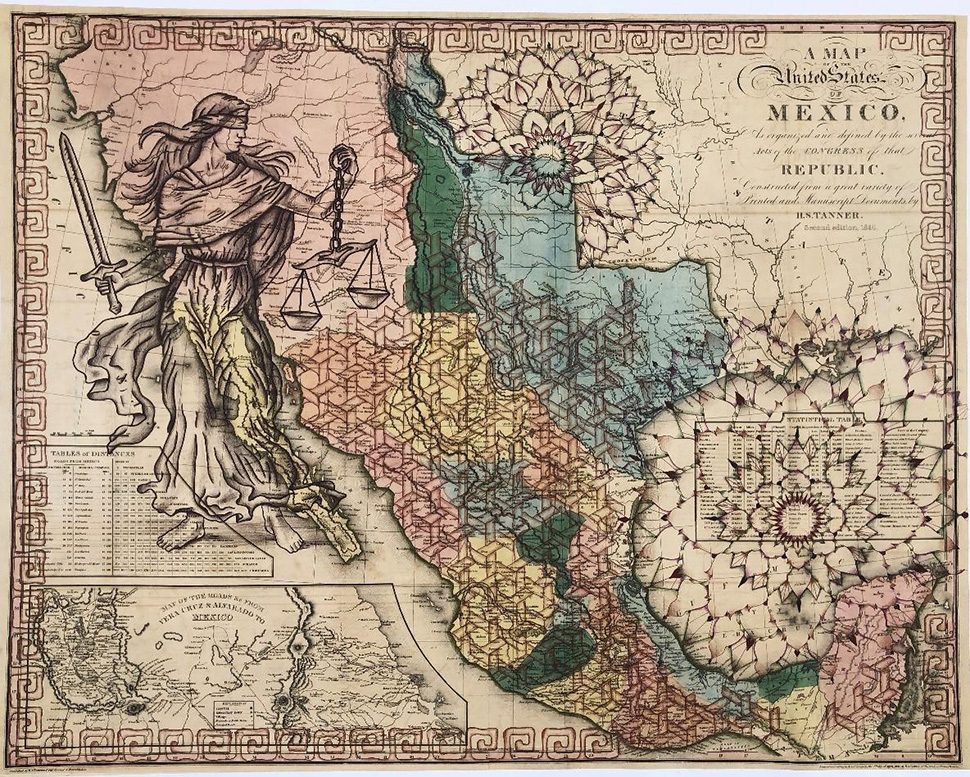
Sarah Ayala, Mexico, 2019, Ink & pencil on map, 26×34
Sara Cardona, Dallas
Cardona will use her Nasher Artist Grant funding to create large-scale animated sculptural forms to examine “how our system of consumption is itself an organism, and one that has directly led to the virus which now threatens that very system of capital and consumption.”
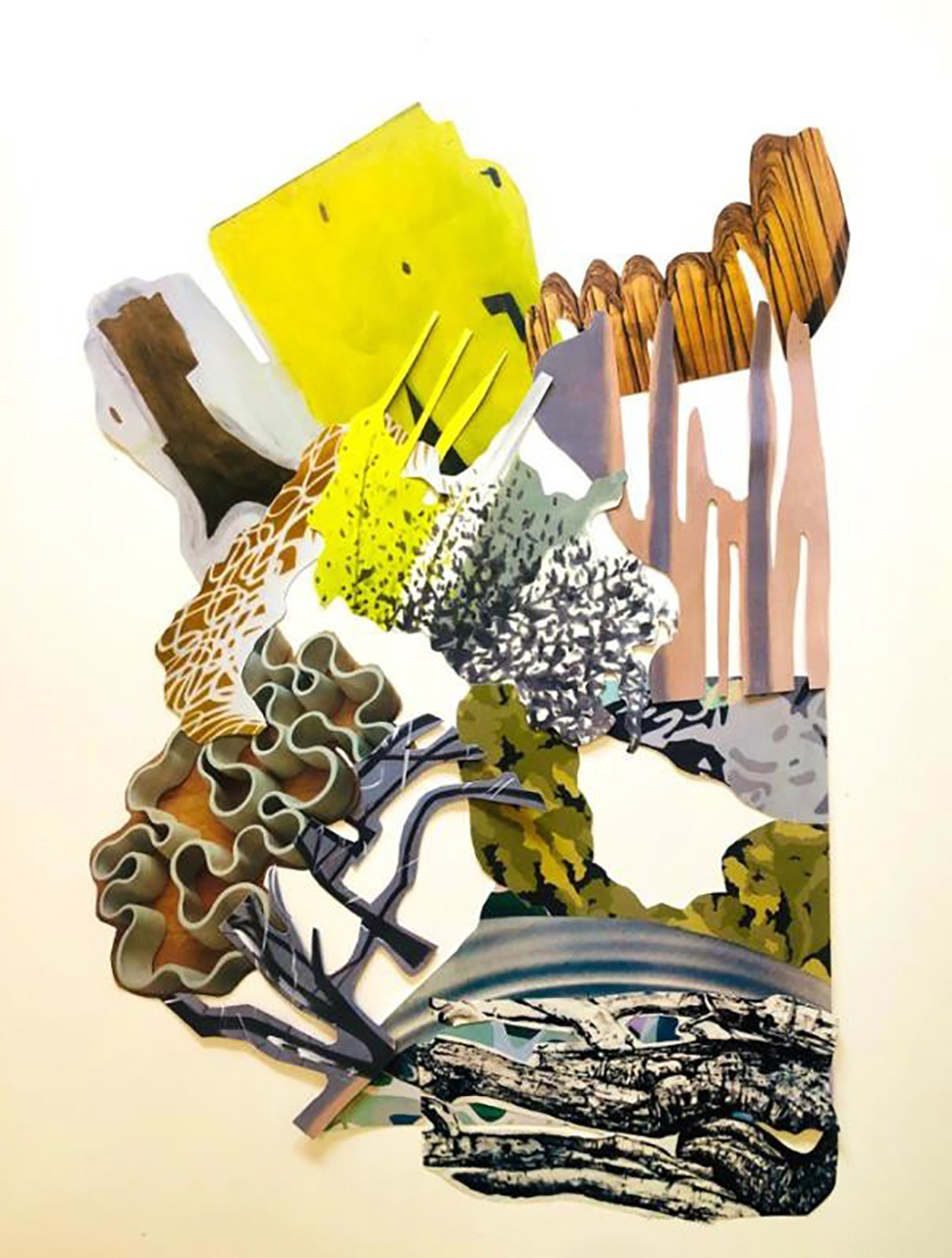
Sara Cardona, Indian Summer, 2020, Mixed Media, 40×30
Janeil Engelstad, Dallas
Engelstad plans to interview frontline workers of the COVID-19 pandemic, including doctors, nurses, workers in essential industries, and people in the policy and cultural sectors. She will also create a multi-form project to engage people outside of the world of galleries and museums.
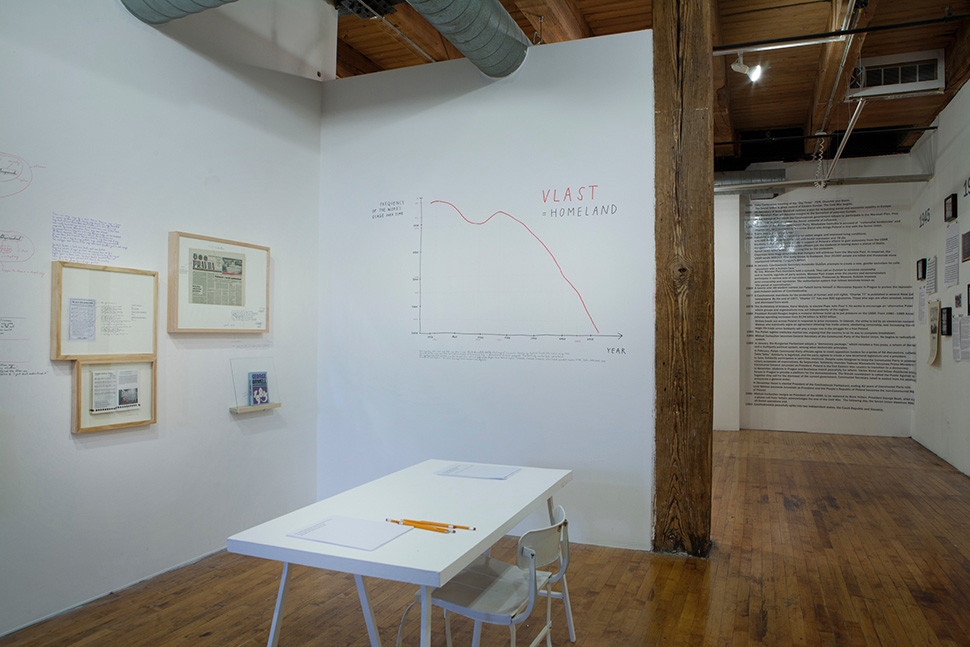
Janeil Engelstad, Voices from the Center, installation view, threewalls, 2011
Julia Jalowiec, McKinney
Jalowiec will use her grant to finish her project called I Will Save you from A Cult, which includes sculptures and paintings to free viewers from “cults of thought and mind control.”
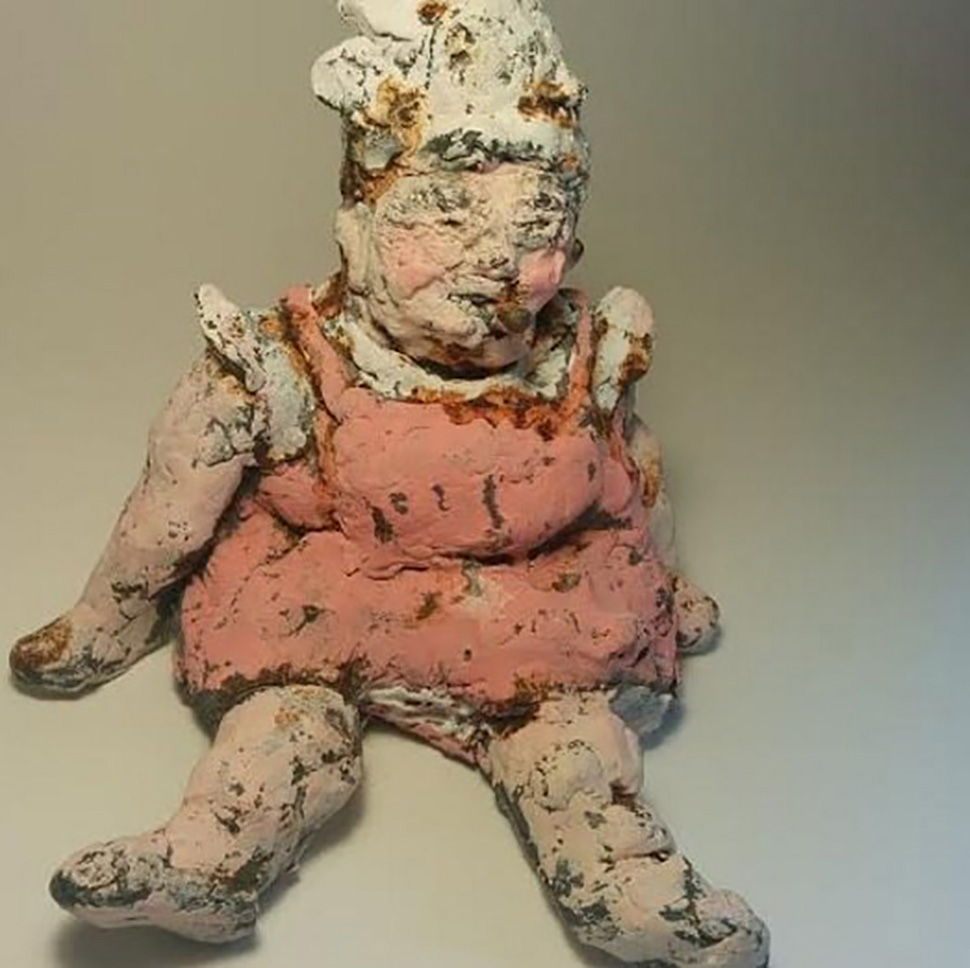
Julia Jalowiec, Kewpie Granny, cast iron
David Jeremiah, Dallas
Jeremiah will use his Nasher Artist grant to support a durational performance called Offering, which investigates the cost of grief by commemorating the deaths of the 2016 shooting in Downtown Dallas, including Michael Xavier, who died by a police robot.
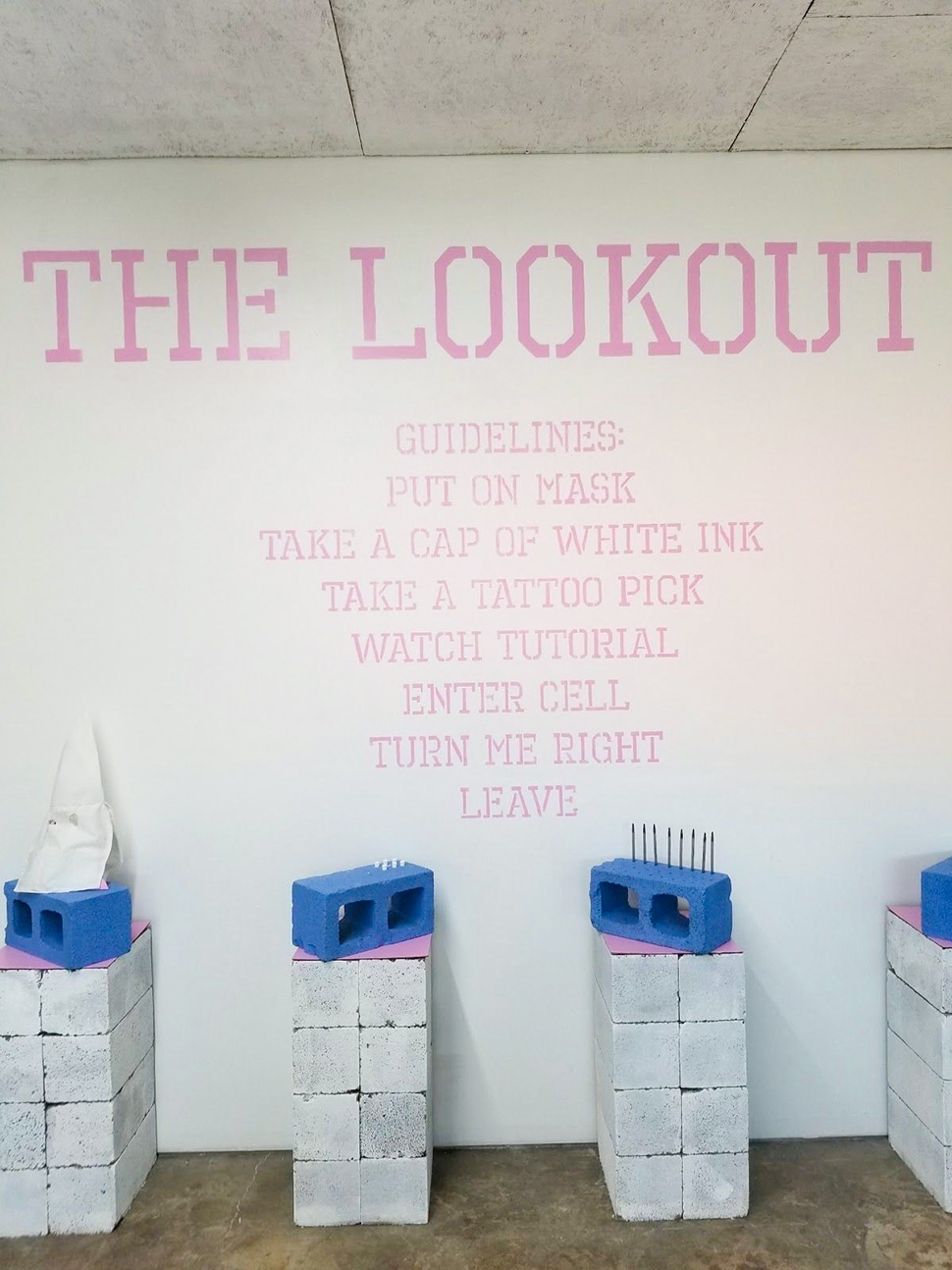
David Jeremiah, The Lookout, site specific durational performance, 2019
Cynthia Mulcahy, Dallas
Funds from the Nasher Artist Grant will help Mulcahy research and develop further iterations of her work, War Garden, a “playful but critical” examination of American millenarianism.
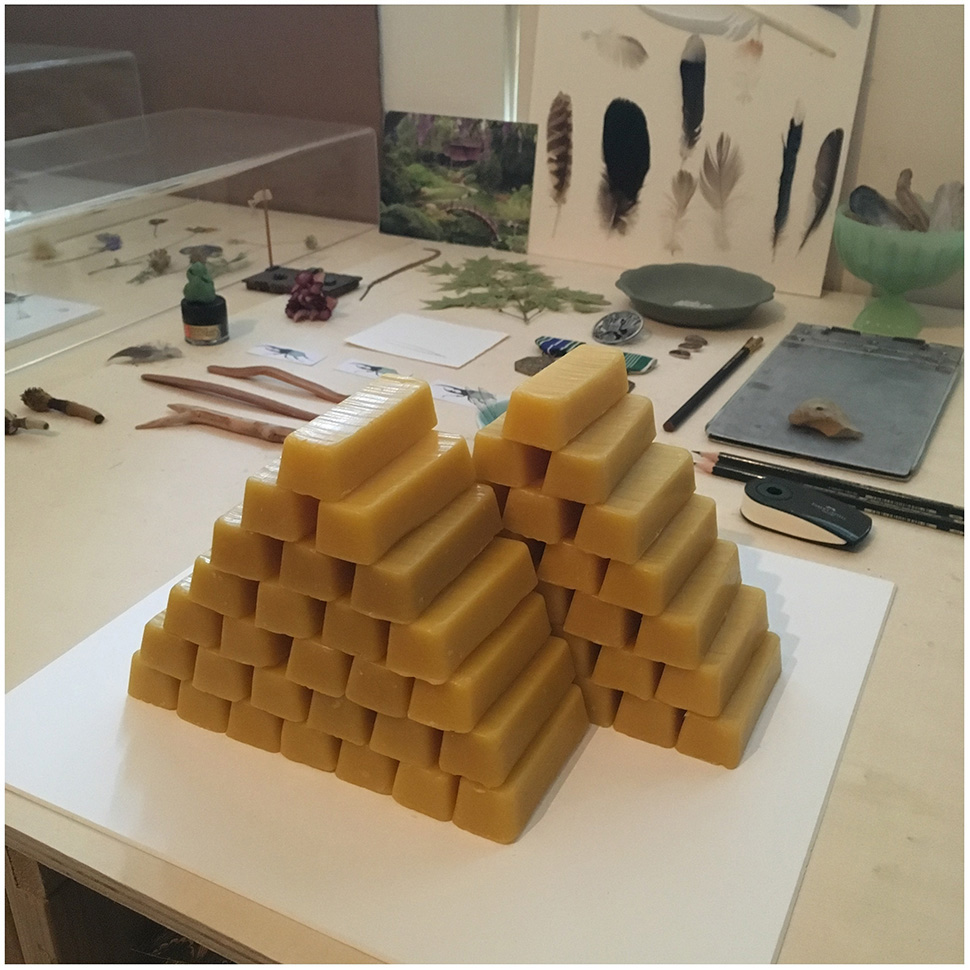
Cynthia Mulcahy, small-scale, studio rough mock-up (before wax stamping) of Willie Pete, from the War Garden series, beeswax, wood, paint.
Nancy Newberry, Dallas
Newberry will purchase a large format printer with her Nasher Artist grant so she can continue her photography series of Texas and Mexico titled Smoke Bombs and Border Crossings, a contemporary Spaghetti Western taking place at the Texas-Mexico border focused on community and nationalism.
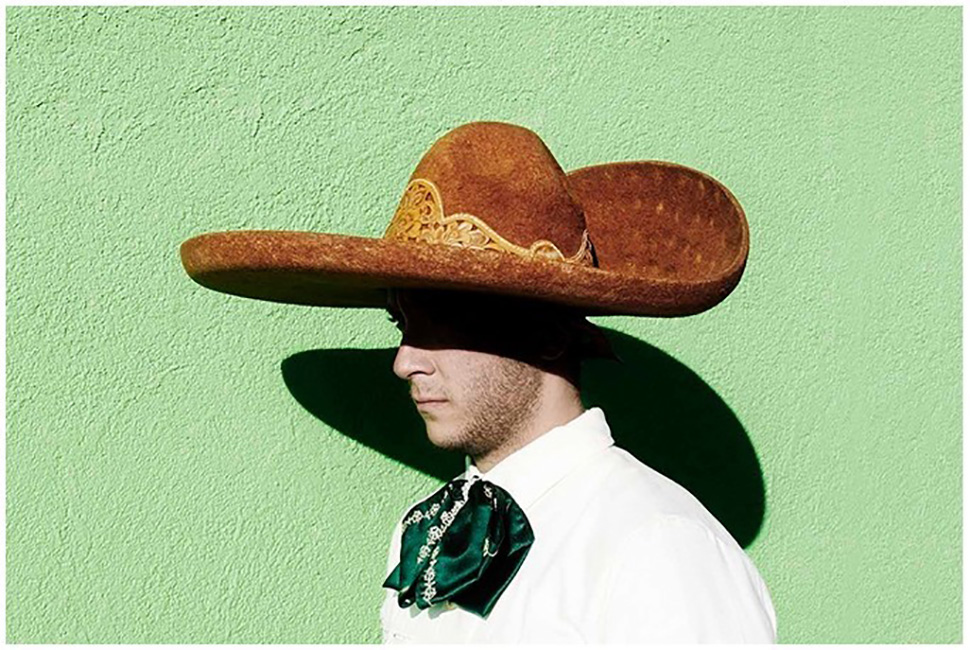
Nancy Newberry, character study, from the series Smoke Bombs and Border Crossings, 2018, Color Gicloee Print, edition of 9
Darryl Ratcliff, Dallas
Ratcliff will use his grant to fund legal research for tying institutional promises to Dallas’ communities of color to the Nasher Collection.
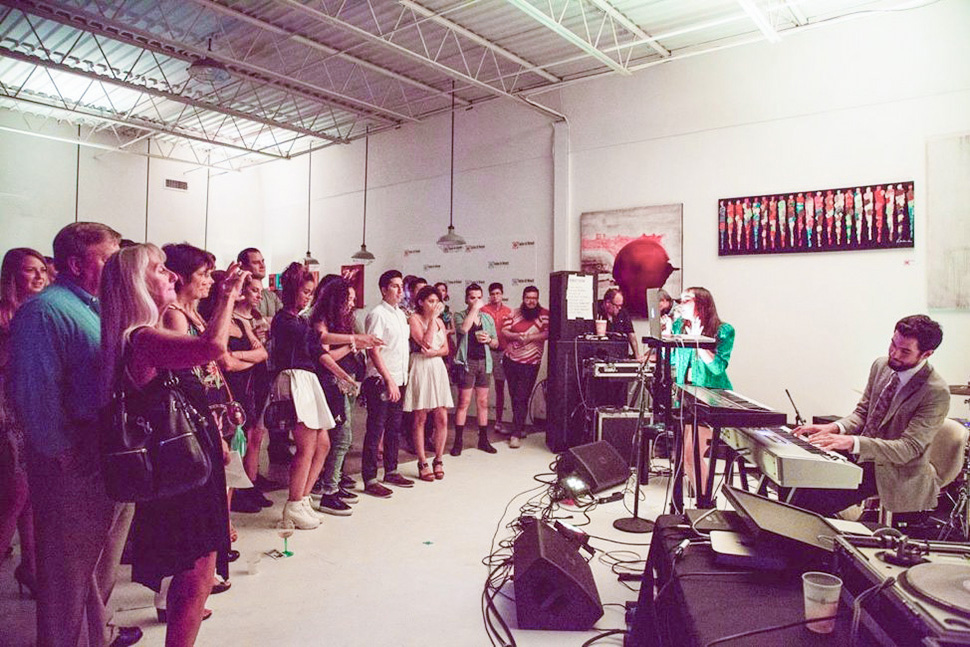
Darryl Ratcliff, Creating Our Future – City Under The Influence, 2014
Raul Rodriguez, Richland Hills
With his Nasher Artist Grant, Rodriguez will buy needed supplies such as an inkjet printer, ink, and photographic printing paper, along with offering the service of printing to fellow artists.
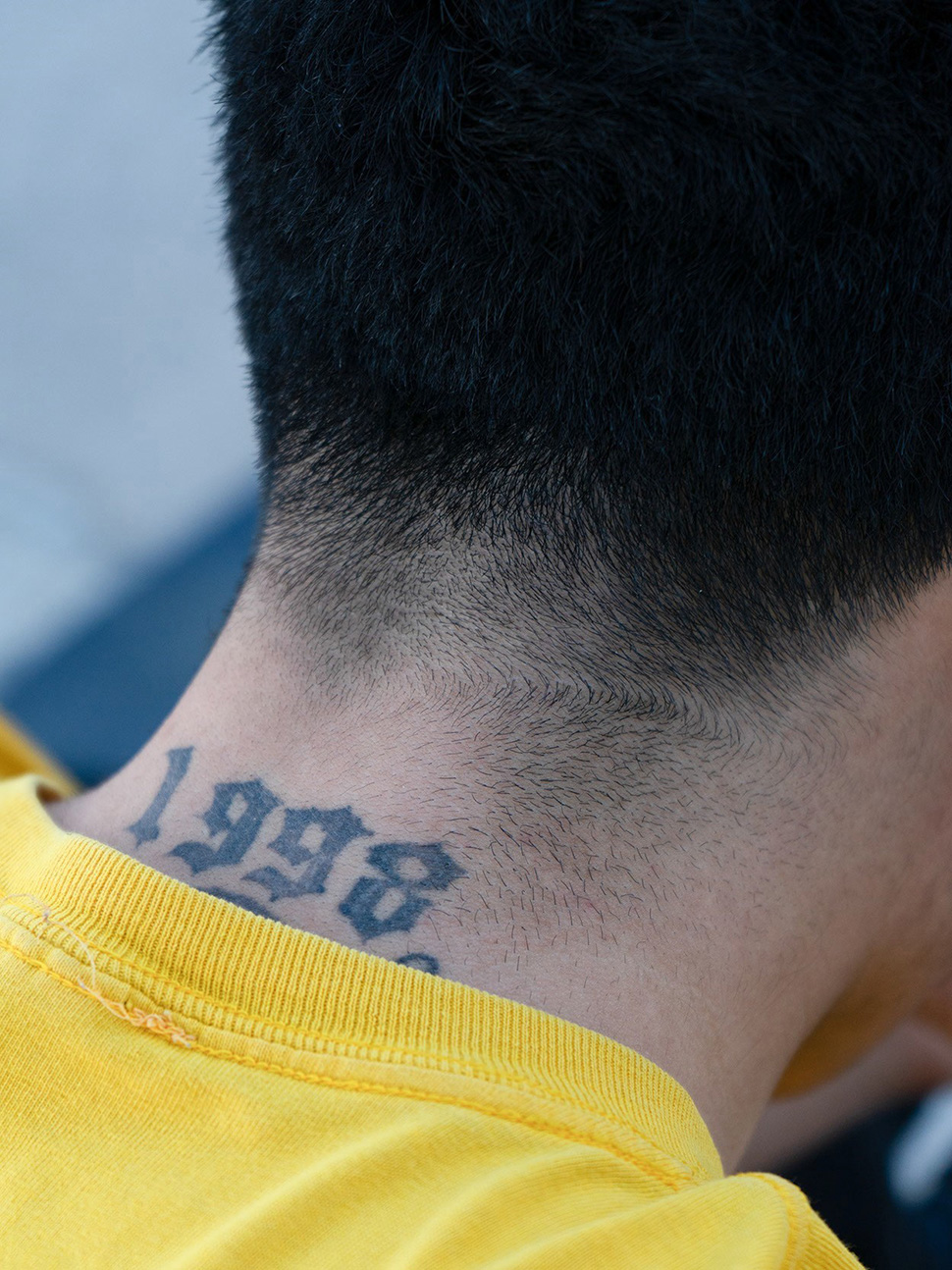
Raul Rodriguez, Marine Park 4, 2020, photograph
Third Space DFW: Antonio Mercado, Kim Nguyen, Chris Bermejo, Norma Gonzalez, Saria Almidani
Third Space DFW will use their grant to translate what was supposed to be their first gallery exhibition, Once a Day Swallow a Small Sun, into a catalog that will explore queer health.
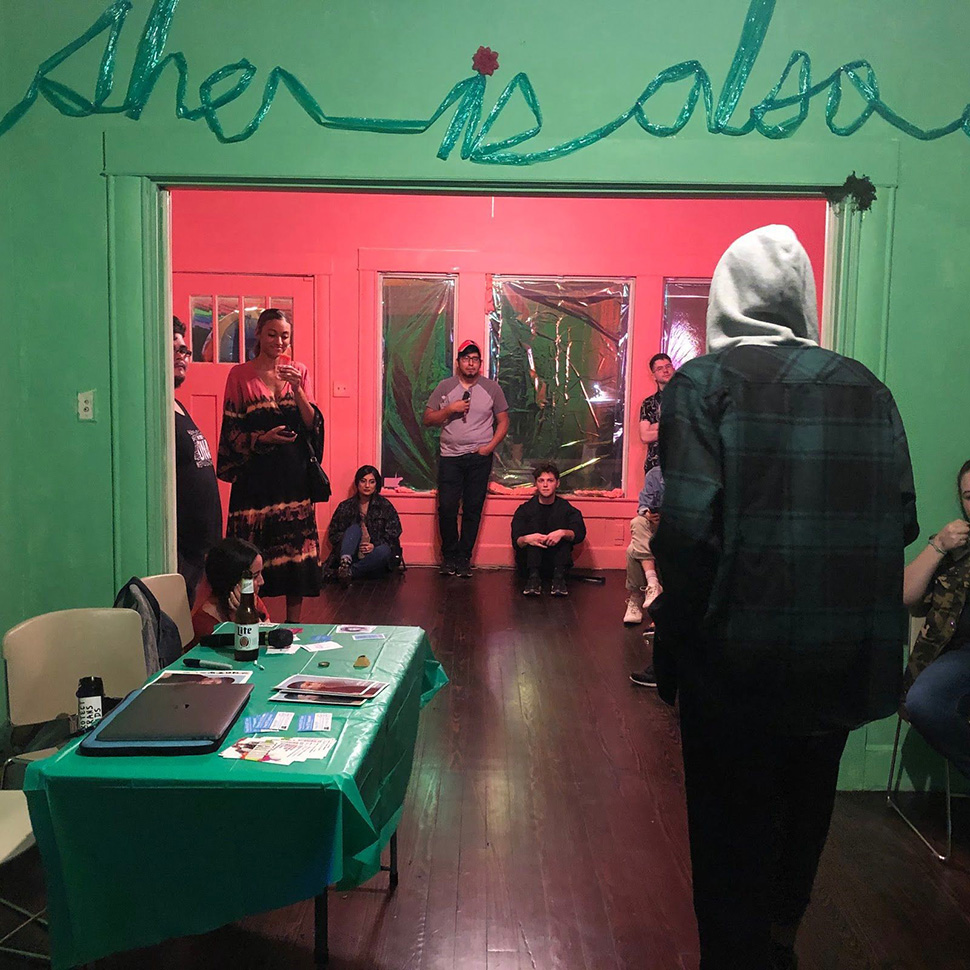
Third Space DFW, ArtsGaggle, 2019, a house installation, drag performance, music, live paint, digital, illustration










